

Prof Xenofon Baraliakos
Professor Xenofon Baraliakos is the Head of Rheumatology at the Rheumazentrum Ruhrgebiet, Herne, Germany, and Professor for Internal Medicine and Rheumatology at the Ruhr-University Bochum, Germany.
He studied human medicine at the University of Magdeburg, Berlin, Germany, and received his PhD degree in 2005. Professor Baraliakos was awarded his official Board Degree in orthopaedic surgery in 2007, and in internal medicine and rheumatology in 2014. His research interests include clinical and academic research in the field of spondyloarthritis, with special emphasis on imaging outcomes and treatment of the disease.
Among others, Professor Baraliakos won the European Workshop for Rheumatology Research (EWRR) Award in 2005, the European Alliance of Associations for Rheumatology (EULAR) Young Investigator Award in 2006 and 2008, the German Patient’s AS Society Award in 2010 and the Award for Excellence in Clinical Research from the European Society for Clinical Investigations (ESCI) in 2014.
Professor Baraliakos is the current president of the Assessment of Spondyloarthritis International Society (ASAS) and past Chair of the EULAR standing committee for musculoskeletal imaging. He also acts as a reviewer and is an associate editor in a number of major rheumatological journals.
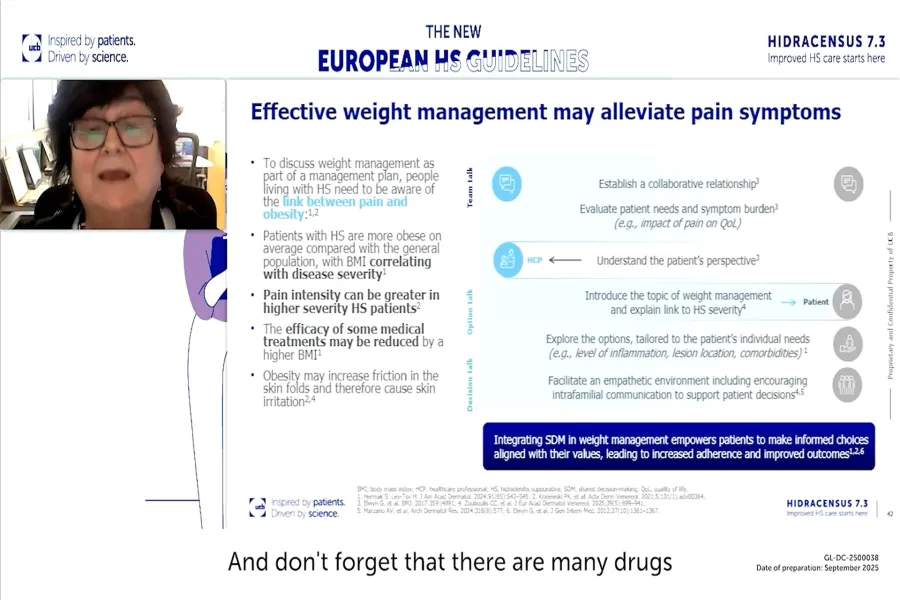
Exploring how the guidelines defines holistic care
Integrating holistic care through guideline recommendations with patient-reported outcomes and shared decision-making
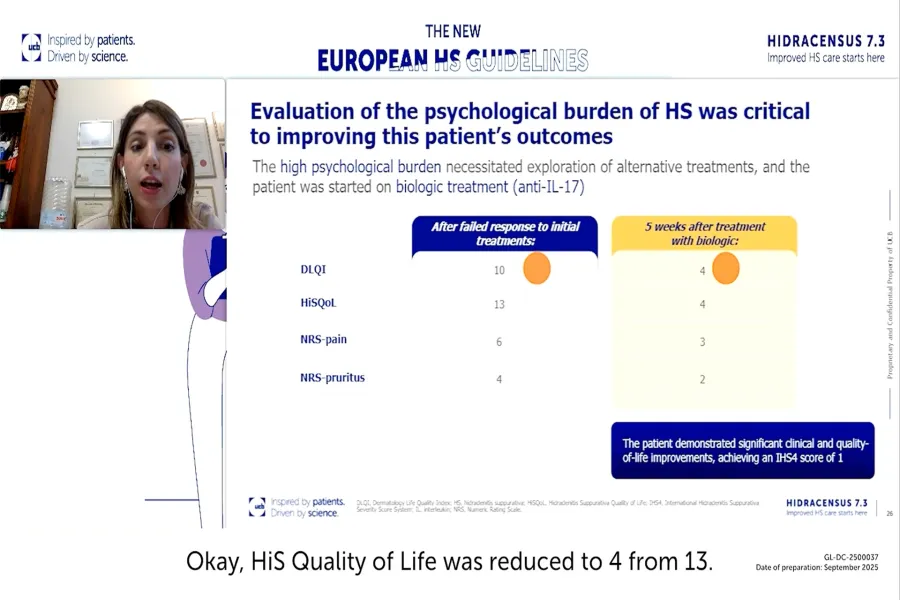
Personalising the approach to HS care
Personalised HS care: Addressing the multi-faceted burden of HS with a case study example
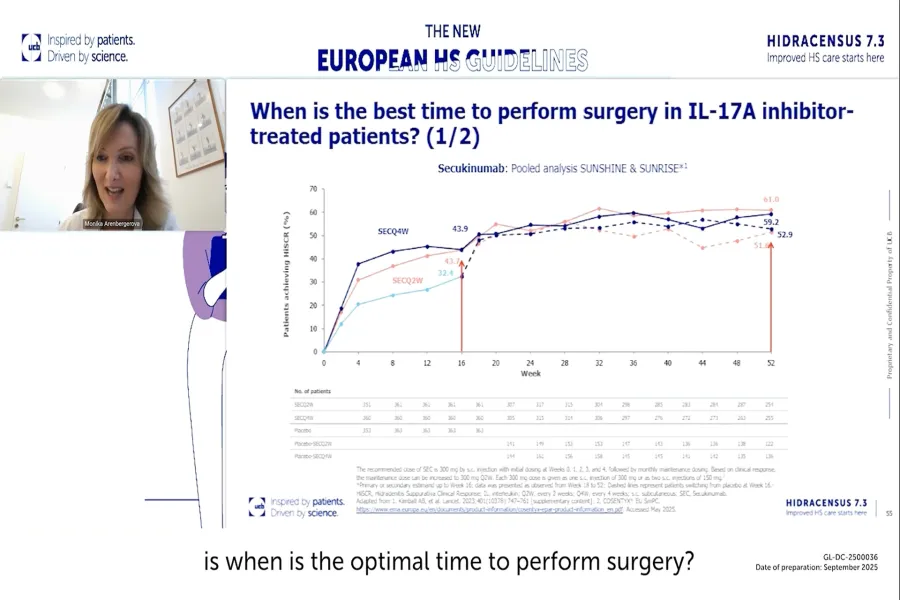
Combination approaches in HS
The role of combined medical/surgical and medical-only treatments, including the optimal time for intervention
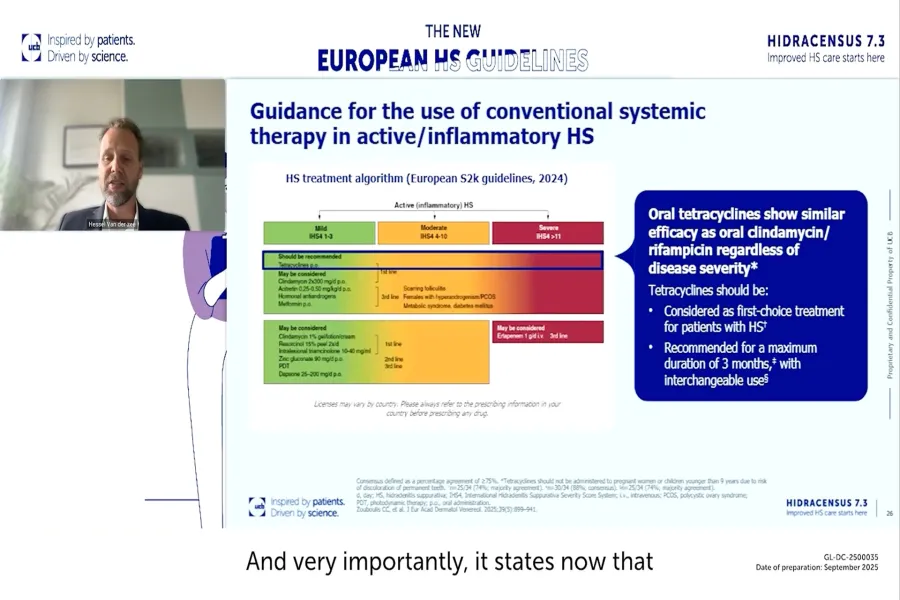
An overview of the European S2k guidelines
Key guideline updates including management algorithms for inflammatory and non-inflammatory HS phenotypes
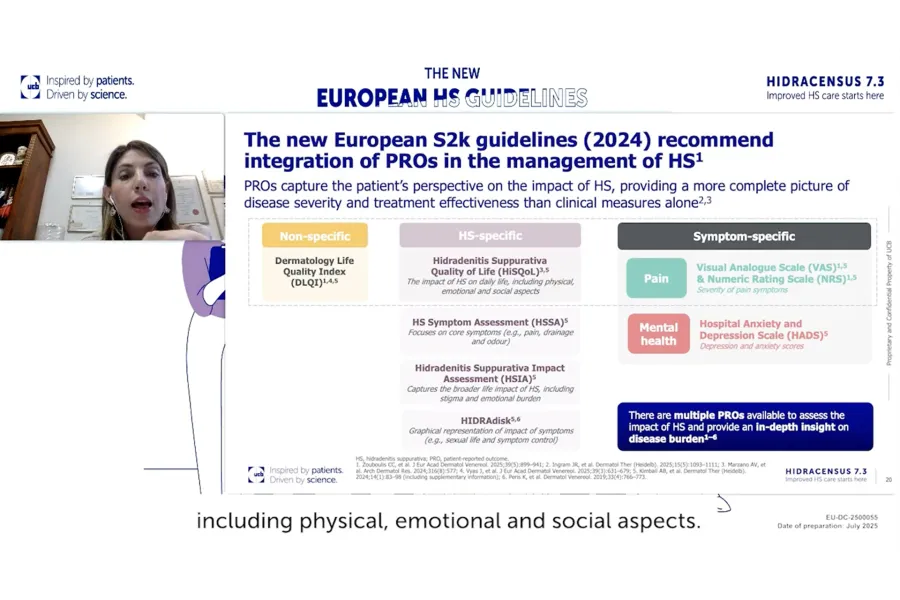
Shared decisions: Redefining HS treatment
Prof. Prignano and Prof. Liakou discuss patient-reported outcomes, shared decision-making and multidisciplinary HS care
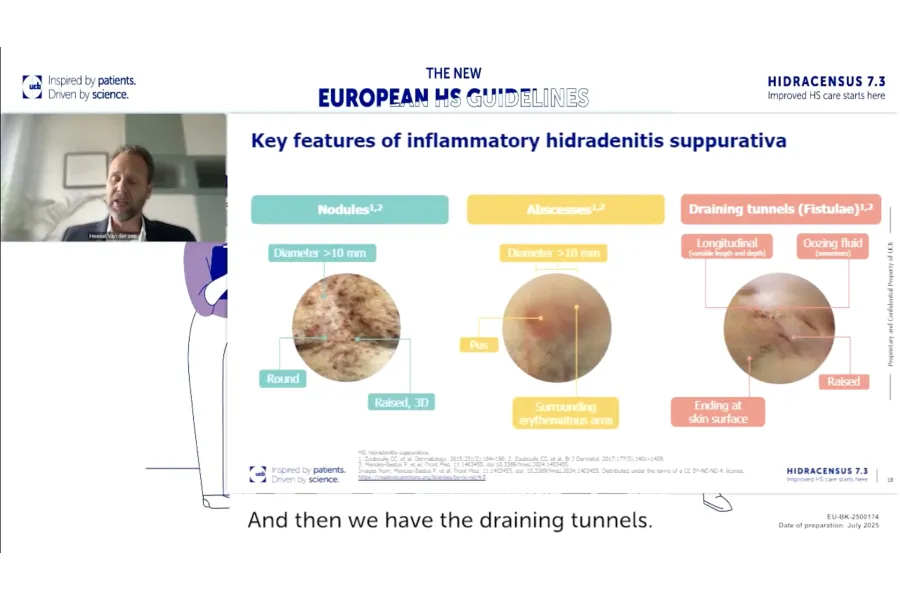
From guidelines to action: Transforming HS treatment pathways
Dr van der Zee and Prof. Arenbergerová explore holistic treatment of HS through medical, surgical and combined approaches